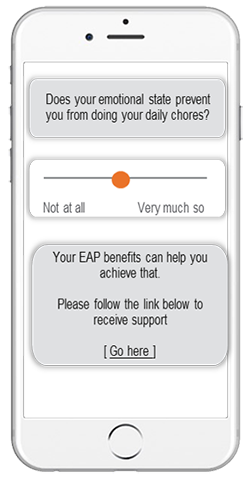Author: Janette Hiscock, CEO UnitedHealthcare Global, Europe
Creating employee wellbeing policies can be a complex task for many employers. However, as the COVID-19 pandemic continues through 2021, employers may want to counteract the difficulties employees are facing outside of work by creating a secure and healthy place of employment, whether it is a virtual workplace or in the normal place of work.
Outlined below are a few considerations for employers reviewing or revisiting employee wellbeing strategies.
1.) Supporting healthy behaviours
 Without the green light from employers, some employees may avoid leaving their laptop for longer than a few minutes in case an urgent email comes in, which can result in employees sitting at desks for long periods of time. However, if employers have a flexible approach and make it clear to employees that not only is it acceptable, but encouraged, to go for a lunchtime walk or run then all employees should find time to build some movement into the day.
Without the green light from employers, some employees may avoid leaving their laptop for longer than a few minutes in case an urgent email comes in, which can result in employees sitting at desks for long periods of time. However, if employers have a flexible approach and make it clear to employees that not only is it acceptable, but encouraged, to go for a lunchtime walk or run then all employees should find time to build some movement into the day.
If some employees are struggling to find motivation for exercise, employers could encourage the use of apps and virtual services. For example, UnitedHealthcare Global’s Optum My Wellbeing app has various fitness challenges, such as step counts, which employees can take part in. Progress can be tracked by the employee alone, or there is the option to track progress against others across the globe. This can make it easier for employees to keep in touch with friends and family – great for both the body, mind and building a community spirit.
In addition, employers can show support for employees looking to lead a healthy lifestyle by offering workshops on a range of different wellbeing issues beyond fitness, from diet to sleep. Remote working shouldn’t get in the way of this; there is no reason why a workshop with a nutritionist or a mental health expert can’t occur virtually.
2.) Ongoing working from home support
Working from home will continue to be an ever-present feature for many office-workers so employers should check in with employees to understand what changes can be made to improve working from home conditions. From desk chairs to standing desks, there are a variety of solutions that formal assessments can help identify to solve issues caused by working from home, such as uncomfortable seating. These assessments may be required to be conducted periodically by either company policy or local legislation, even if this is not the case, employers may want to consider conducting ergonomic assessments virtually with employees to confirm the right measures are in place to keep employees comfortable when working from home.
3.) The importance of Employee Assistance Programmes
Ensuring access to a suitable Employee Assistance Programme (EAP) should always be a priority for employers, in fact, a recent survey showed that 42% of employees think it is very important for employers to offer programmes and services to address mental health1 - which is exactly what an EAP does. EAPs can be accessed virtually or by phone, which means employees don’t have to rely on face-to-face interaction and offer users many services from counselling to mental wellbeing and financial and legal advice.
With the continued uncertainty in the world, anxiety and stress remain present amongst the global workforce so employers must continue to remind employees that EAP services exist to support mental and physical wellbeing. Counselling services can be invaluable for employees struggling with mental health by offering support from a trained professional. Maintaining employee mental health and resilience is critical to ensuring a productive and happy workforce.
For employers, taking the time to consider overall employee wellbeing strategies with a fresh perspective can help clarify tweaks or changes that need to be made to improve overall employee wellbeing. If employers can successfully adapt wellbeing policies to be beneficial in line with the shifting global landscape, this may lead to a happier, healthier workforce.
-------------------------------------------------------------------------------------------------------------------------------------------------------------------------------------------
1: Optum consumer insight survey 2020
